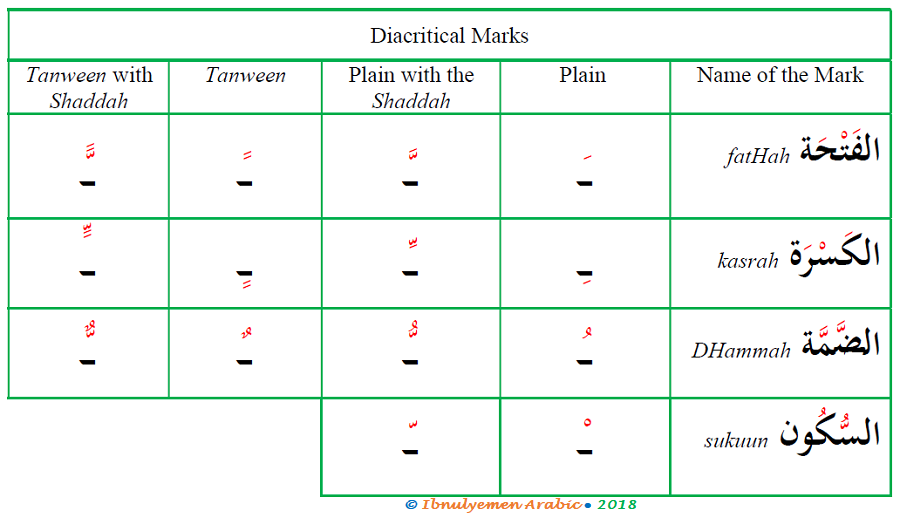In the previous lesson, you learned that Arabic certainly has vowels, but they are not written, especially in Modern Standard Arabic, because they are diacritical, i.e. not actual letters. These vowels are called short vowels or الْحَرَكَاتُ الْقَصِيرَة al-Harakaat al-qaSiirah. Besides them, there are other diacritical marks. What are they? This lesson will answer this question.

The above table includes all the diacritical marks in Arabic. The most basic of these are the three short vowels—the fatha, the kasra, and the dhamma. The fatha (pronounced as a) and the dhamma (pronounced as u) are put above the letter, while the kasra (pronounced as i) is put below it. The sukuun simply means the absence of the three short vowels. For an illustration, if we add these four diacritical marks above/below the letter ف, here is how it will be pronounced:
|
فْ = f |
فُ = fu |
فِ = fi |
فَ = fa |
The shadda means doubled letter. It is normally a sequence of two identical letters, the first with sukuun above it and the second with a short vowel above/below it. For instance, the letter ن with a shadda will be written and pronounced in four different ways, as in this example:
|
نْ نْ ← نّ = nn |
نْ نُ ← نُّ = nnu |
نْ نِ ← نِّ = nni |
نْ نَ ← نَّ = nna |
The tanween is double fatha on top of each other (pronounced as an), double kasra on top of each other (pronounced as in), or double dhamma next to each other (pronounced as un). It is always put above/below the last letter of singular nouns and adjectives. Its function has to with the grammar, which you will learn in future lessons.
The shaddah with tanween is also double letters that occur only at the end of nouns and adjectives. The first letter has a sukuun and the second has a tanween, so they become a geminate (doubled letter) with the tanween above/below it.
In the next lesson, you will learn about the roles and functions of these diacritical marks.